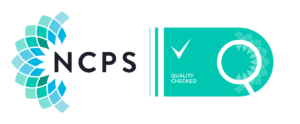Chrysalis Level 3 Certificate in Introduction to Counselling Skills (CERT CS.)
Counselling
6 Months
Call us 01278 726 982
Chrysalis Level 3 Certificate in Introduction to Counselling Skills (CERT CS.)
Counselling
6 Months


6 Months
King's Trust Level 3 Certificate in Introduction to Counselling Skills
Training to be a counsellor involves starting your journey with an introductory qualification in counselling skills. Our Level 3 Certificate is the perfect start and gives you a route to full professional training.
Our unique training provides enjoyable and insightful exercises, tutor-led discussions, and reflections to build your skills and self-awareness. This qualification is not only a first step to a counselling career but is also excellent professional development for anyone working in person-facing roles.
Choose this level 3 Certificate in Counselling Skills course if you want to begin your journey to becoming a counsellor and be recognised for your therapeutic skills.
SEE THIS CERTIFICATE ON THE OFQUAL REGISTER >>
Study Methods: Practical classroom work; Practice Groups; Homework assignments; Reflective Journal; Case Studies; Focus on practical work with no final exam.
The Level 3 Certificate in Introduction to Counselling Skills does follow a different format than other Chrysalis courses. This course consists of 11 classes over 6 months and you will be required to attend classes on both a Saturday and Sunday (10am - 5pm).
*Pricing may vary depending on location.
Component 1: Introducing Counselling And Communication Skills
In this first component you are introduced to the counselling and communication skills developed by the counselling profession over many decades to assist people seeking help. These core skills include active listening, attending to body language, empathising, and learning how to communicate clearly to build trust and rapport.
Component 2: Developing Self-understanding And The Helping Relationship
Empathy, unconditional positive regard, and congruence are the foundation of a strong and supportive helping relationship. This component focuses on the development of these core conditions alongside development of self. You'll achieve this through practical exercises and tutor led reflection and discussion.
Component 3: Developing A Range Of Counselling Skills
In this component you will learn and develop your range of skills. This will include selecting appropriate skills for the helpee and for the stage of helping. Ethics plays a vital role in counselling work and you explore key ethical concepts such as confidentiality, level of competency, and boundaries.
Chrysalis Level 3 Certificate in Introduction to Counselling Skills (CERT CS.)
Counselling
6 Months
£256.30
(8 payments)Instalment plans do require a deposit and will be discussed at interview.
£2,562.93
£2,276.62
* Those with an existing level 3 qualification in counselling may be eligible for direct entry into year 2.
Hypnotherapy Counselling
3 years
£124.43
(40 payments)Instalment plans do require a deposit and will be discussed at interview.
£6,221.07
£5,528.71
Wherever you are in the country, you’re just around the corner from one of our counselling or hypnotherapy courses.